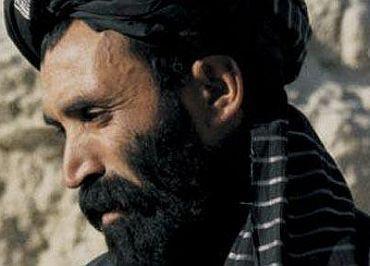 Establishing dialogue with the Quetta Shura must be recognised as a key strategic requirement. This would allow India to catalyse a favourable settlement in post-2014 Afghanistan, says Ajai Shukla
Establishing dialogue with the Quetta Shura must be recognised as a key strategic requirement. This would allow India to catalyse a favourable settlement in post-2014 Afghanistan, says Ajai Shukla
The Afghan war is coming to an end. Core Al Qaeda is a shell of its former self. Groups like the AQAP [Al Qaeda in the Arabian Peninsula] must be dealt with, but in the years to come, not every collection of thugs that labels themselves Al Qaeda will pose a credible threat to the United States, declared US President Barack Obama last Thursday at the National Defence University, Washington, DC. He was announcing the effective end of America's global war on terror, a sharp curtailment of the drone strike programme and was confirming that most American troops would pull out from Afghanistan by end-2014.
This is mixed news for India. For a dozen years since 9/11, the US military has secured Afghanistan, providing the tenuous security in which India's $2-billion aid programme has enhanced our already friendly image. But the US military presence has also backstopped Hamid Karzai’s artificial, centralised regime -- an alien political construct in inherently federal Afghanistan. And America's presence has been the oxygen that sustained the Taliban insurgency.
The Taliban will not be the only winners from the US drawdown, as a range of Afghan regional leaders will reassert control over their traditional support bases. Heading the list of losers will be Karzai, or his successor in the presidential palace in Kabul. (In New Delhi last week, he declared, "No circumstance will allow me to stay as president"). With fewer foreign troops, curtailed funding and a military that serious reverses could fracture along ethnic fault lines, Kabul's writ could be confined to a dramatically reduced geography. Since the next government in Kabul will be just one of the pack, rather than the ultimate arbiter of power that it has been since 2001, New Delhi was wise last week in treating cautiously Karzai's "wish list" for Indian weaponry.
Dealing equitably with Afghanistan's disparate power players while continuing to support the ebbing power in Kabul would position New Delhi for brokering a suitable peace settlement in Afghanistan. Given the war fatigue in that country and the trust that India enjoys there, New Delhi is well poised to play Honest Joe. For that, New Delhi must consciously demonstrate even-handedness. It can no longer arm Kabul, or any Afghan group, to the exclusion of the others.
India can only broker peace in post-2014 Afghanistan if it has dialogue linkages with every major faction. Since the anti-Soviet jihad ended in 1989, India has developed strong relations and functional partnerships with a cross section of Afghan groups. But three major groups still remain beyond New Delhi's influence: the Taliban's Quetta Shura (or Rehbari Shura), led by Mullah Omar; the Hezb-e-Islami; and the Haqqani Network.
While the Hezb-e-Islami's immensely pragmatic (and widely reviled) chief, Gulbuddin Hekmatyar, would respond to New Delhi's blandishments, the Haqqani Network -- funded, organised and controlled by the Pakistan army -- would emphatically reject dialogue with Indian interlocutors. That leaves the 900-pound guerrilla of the southern Pashtun heartland, Mullah Omar and the Quetta Shura, which India has long ignored because of a mixture of short-sightedness, unimaginativeness, incompetence, prejudice and fear.
Even as evidence piles up of the Quetta Shura's disillusionment with Pakistan and its heavy-handed, unsophisticated spy agency, Inter-Services Intelligence, New Delhi incredibly refuses to accept, or act on, its good fortune. Despite indications of friction between an exploitative Islamabad and a rebellious Taliban leadership for whom Afghan interests take precedence over Pakistan's, New Delhi clings onto a monochromatic world view in which the fundamentalist Taliban is the Evil Empire.
South Block does not perceive that the Taliban has to align with the pro-India (and anti-Pakistan) sentiment of the Afghan people. Instead New Delhi keeps trotting out the historically unjustifiable bugaboo that, having sent off the Americans, the Taliban would then divert its attention to Kashmir. A top Indian government official even says: "If Mullah Omar is serious about repairing relations with India, let him first prove it!"
While New Delhi waits for its windfall to validate itself, Pakistan has understood what India has not -- that influence rests on contacts and relationships across the power spectrum. Expecting to shape the outcome in Afghanistan, Pakistan is building bridges with traditional Indian friends there, especially members of the erstwhile Northern Alliance, and with Hamid Karzai, who is happy to take out insurance with his powerful, and vengeful, neighbour.
New Delhi's reluctance to engage the Quetta Shura also stems from the absence of intelligence mechanisms needed for contacting the Taliban leadership. With Mullah Omar in the ISI's custody and with other senior leaders scattered in Pakistan and southern Afghanistan, a strong Indian intelligence presence around Kandahar would be essential for initiating the engagement.
Giving the lie to Pakistan's conviction that Indian agents in Kandahar are fuelling the entire Balochistan insurrection, the rather more prosaic truth is that the Indian consulate in Kandahar is so preoccupied with surviving day to day that there is little scope for more derring-do tasks like contacting Mullah Omar.
Establishing dialogue with the Quetta Shura must be recognised as a key strategic requirement. This would allow India to catalyse a favourable settlement in post-2014 Afghanistan, something that would be in the interests of every player involved, and especially the Afghan people.
There is a wellspring of trust in Indian goodwill in Afghanistan. New Delhi must also trust in its own influence and ability.
Image: Mullah Omar












 © 2025
© 2025